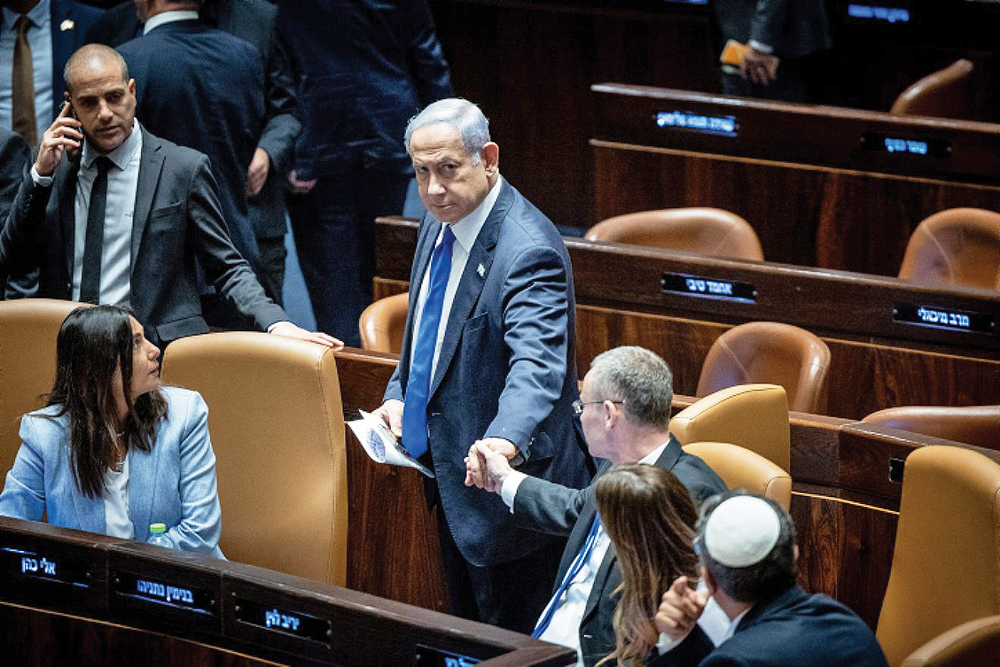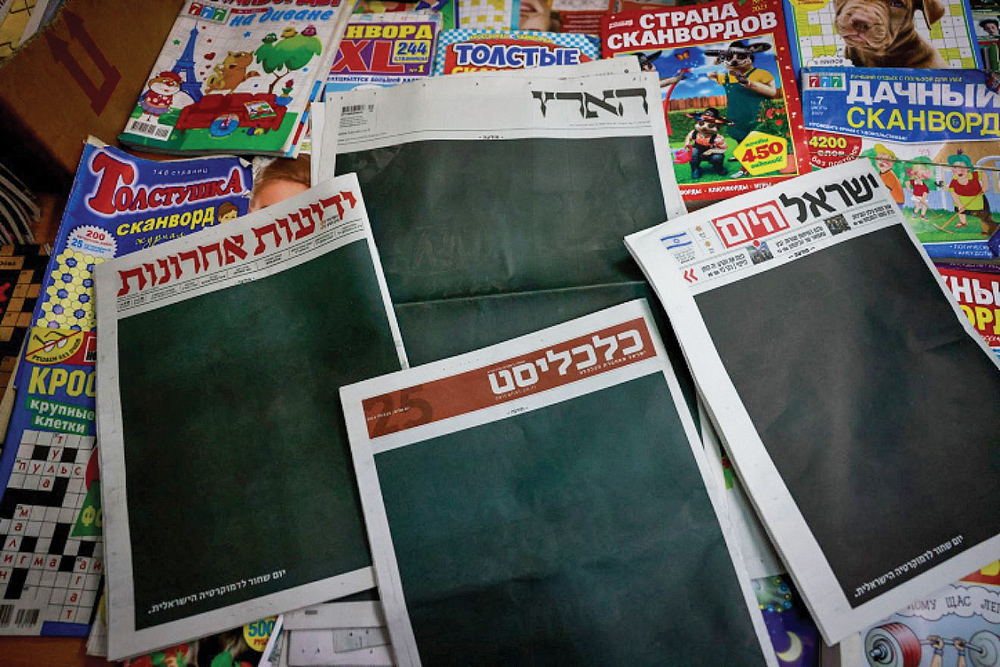Amid nationwide protests, the opposition boycotted the final reading as all 64 coalition members voted in favor of the “reasonableness clause” of the judicial reform legislation.
The Knesset passed a key piece of the coalition’s judicial reform legislation into law on Monday, July 24.
All 64 members of the coalition, including Prime Minister Benjamin Netanyahu, who was released from hospital on Monday morning following a procedure to implant a cardiac pacemaker, voted in favor. Opposition lawmakers boycotted the third and final vote.
The amendment to Basic Law: The Judiciary limits the Supreme Court’s use of the so-called reasonableness standard. It bars “reasonableness” as a legal justification for judges to reverse decisions made by the Cabinet, ministers and “other elected officials as set by law.”

Ahead of the vote, Justice Minister Yariv Levin questioned whether “what is reasonable in the eyes of the judges is the logical thing to do? Who decided that their personal positions are better than those of the ministers?
“Where is the school to learn about reasonableness? Is there such a place? Of course not, because ‘reasonableness’ is a worldview. It’s not a legal matter,” he added.
Opposition and Yesh Atid Party leader Yair Lapid earlier Monday denounced the legislation as a “hostile takeover of the Israeli majority by an extremist minority,” adding, “You know that what’s happening here is a disaster that can be prevented. A tragedy that we must stop.”
The votes drew thousands of anti-reform demonstrators to Jerusalem, while on Sunday night tens of thousands of supporters of judicial reform gathered in Tel Aviv for a major rally.
Twelve people were arrested outside the Knesset on Monday as anti-reform demonstrators tried to blockade the building in Jerusalem’s Givat Ram neighborhood, leading to clashes with police.

Law enforcement used water cannons to disperse the demonstrators blocking access to the Knesset.
Five protesters were brought to Shaare Zedek Medical Center in Jerusalem with minor injuries, Israeli media reported. Police said that three officers were treated at the hospital for light injuries.
“A violent siege in an attempt to prevent members of the Knesset from exercising their right and duty to vote in the plenum is not democracy,” said Finance Minister Bezalel Smotrich.
Thousands of IDF reservists threatened not to report for duty if the amendment became law.
President Isaac Herzog said ahead of the final votes that there was a “state of national emergency,” trying to no avail to work out a last-minute compromise.
Last week, Netanyahu said, “The rights of the courts and Israeli citizens will not be harmed in any way. The court will continue to monitor the legality of government decisions and appointments. [We] will be required to act in good faith and with proportionality, fairness and equality.”

Several leading Israeli newspapers ran entirely black front page advertisements on Tuesday morning, in response to the passing of the judicial reform legislation the day before.
The ads, published by “Israel Hayom,” “Haaretz,” “Yediot Ahronot” and “Calcalist,” were paid for by the Israeli Hi-Tech Protest movement, a group comprising hi-tech employees and business owners.
“A black day for Israeli democracy,” the organization’s ad read, while the word “advertisement” was only printed in small text at the top of the page.
The protest group openly claimed the advertisement on Tuesday morning, writing on Twitter: “They got us! We tried so hard to hide our logo, [it’s on] page 2 of the newspaper.”
Israeli National Security Minister Itamar Ben-Gvir responded by saying that “your opinion will not be bought by the hundreds of millions [of shekels spent] by foreign entities that finance the demonstrations, bought all the front pages of the newspapers this morning and are running a campaign to destroy the country.”

(Credit: Chaim Goldbeg/Flash90)
“Today, we performed a necessary democratic step,” Israeli Prime Minister Benjamin Netanyahu said in a speech on Monday night, explaining that realizing the will of the voters “is not the end of democracy… it is the essence of democracy.”
By JNS Staff










